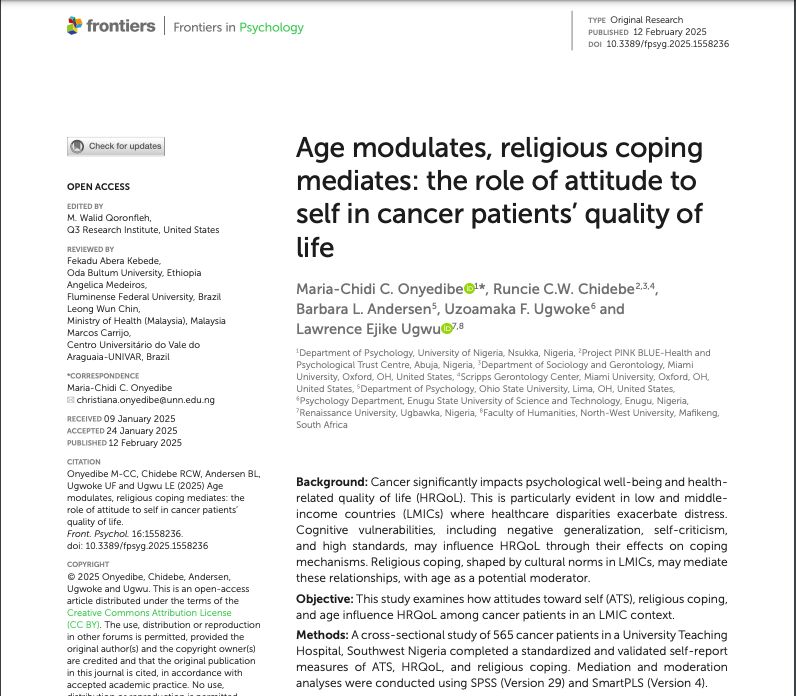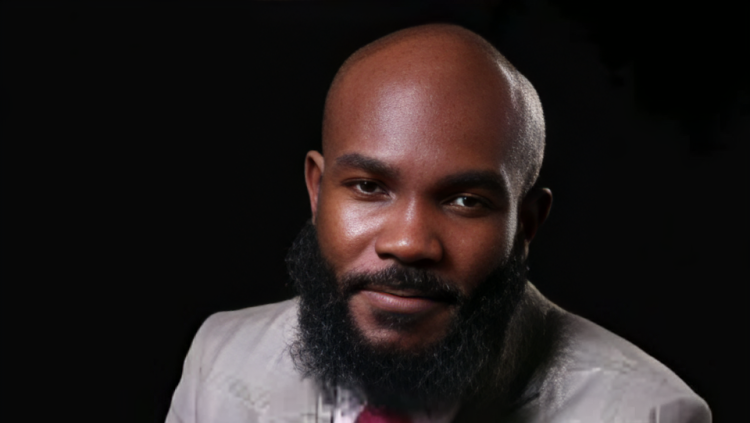Runcie C.W. Chidebe, Executive Director at Project PINK BLUE, shared on LinkedIn about a recent paper by Maria-Chidi C. Onyedibe et al.:
“New Publication – “Age modulates, religious coping mediates: the role of attitude to self in cancer patients’ quality of life”
For many cancer patients, the Big ‘C’ word brings much distress (i.e., negative stress) that significantly impacts the psychological well-being and health-related quality of life (HRQoL). Several studies have shown that cancer patients experience heightened psychological distress, including depression, anxiety associated with recurrence, etc.
Many patients navigate the journey using religious coping, attitude, meaning, and interpretation of the diagnosis, among many other psychological strategies. We decided to understand the relationships between attitude to self and health-related quality of life in cancer patients, with a focus on the mediating role of religious coping and the moderating role of age.
Our Findings showed that:
- Negative generalization and self-criticism are associated with reduced physical well-being of cancer patients.
- Older individuals are more vulnerable to the harmful impacts of cognitive predictors, while younger individuals may experience some protective effects.
- Older patients experienced more pronounced declines in physical and functional well-being linked to negative attitude to self and negative religious coping.
- The indirect effects of negative religious coping were more pronounced in older participants, underscoring age-related vulnerabilities in managing maladaptive coping strategies.
Our study highlights the importance of age-sensitive interventions, such as tailored community support programs and therapies, that address the unique vulnerabilities associated with aging.
We argue that tailored interventions that integrate cognitive-behavioral therapy (CBT) with culturally and religiously sensitive approaches are urgently needed to improve cancer patient outcomes in Nigeria.
We must equip oncology professionals to identify and effectively address negative religious coping in oncology clinics and facilities.
Older cancer patients should be given tailored support and care based on their unique vulnerabilities.
To our knowledge, this is the first study to examine the impact of attitudes toward the self (ATS) on health-related quality of life (HRQoL) in cancer patients, highlighting the critical role of cognitive vulnerability in this population.
Please read the full article here. Use the comment section to share your feedback.
I want to give special thanks to Maria Chidi C. Onyedibe for leading this study and to my other co-authors, such as Lawrence-Ejike Ugwu, Barbara L. Anderson, and Uzoamaka F. Ugwuoke.”
Authors: Maria-Chidi C. Onyedibe et al.



